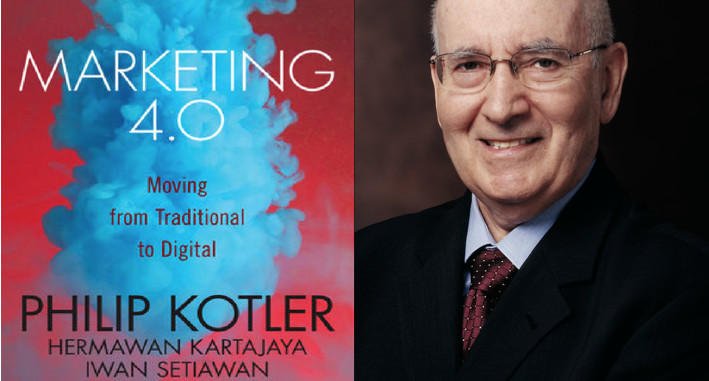Team culture is the invisible force that drives collaboration, innovation, and engagement within any organization. It’s what motivates employees to show up each day with enthusiasm, ready to contribute their best. But creating a strong team culture doesn’t happen overnight—it requires intentionality, consistency, and a focus on the right ingredients. Here’s a closer look at some of the key pillars that form the foundation of a high-performing, cohesive team culture.
Feedback: The Pathway to Growth
Imagine navigating your career like a ship without a compass, never knowing if you’re headed in the right direction. Feedback is that compass. Constructive, timely, and specific feedback helps team members understand where they excel and where they can improve. It’s not just about pointing out mistakes—it’s about providing actionable insights that help individuals grow. The most successful teams have a culture where feedback flows freely in both directions. Leaders give it, but they also welcome it. The result? Continuous improvement and a team that learns from each other.
Do:
- Provide timely and constructive feedback regularly.
- Focus on specific actions and results, not personal traits.
- Make feedback a two-way process by encouraging employees to share their thoughts.
Don’t:
- Avoid vague or generalized feedback like “Do better.”
- Don’t criticize in public; keep sensitive feedback private.
- Don’t ignore positive feedback; it’s essential to balance both praise and areas for improvement.
Appreciation: The Fuel for Motivation
It’s human nature to crave recognition. When team members feel appreciated, their motivation skyrockets. But appreciation isn’t just about a pat on the back or a generic “good job.” It’s about acknowledging efforts, big and small, in a way that resonates with the individual. Whether it’s a shout-out in a meeting, a personalized thank-you note, or public recognition of a job well done, appreciating your team’s hard work fosters loyalty and a positive atmosphere. A culture of appreciation keeps morale high and people engaged in their work.
Do:
- Recognize individual and team contributions frequently.
- Personalize appreciation based on what resonates with the individual.
- Show genuine and heartfelt appreciation, not just formalities.
Don’t:
- Don’t assume everyone likes public recognition—tailor it to preferences.
- Don’t forget to appreciate efforts, not just outcomes.
- Avoid generic phrases like “good job” without context.
Communication: The Lifeline of Team Culture
Clear, open, and honest communication is the foundation of any strong team culture. It ensures that everyone is on the same page, moving toward common goals. More than just sending emails or having meetings, it’s about fostering an environment where everyone feels heard and where feedback is encouraged. Leaders who are transparent build trust, and teams that communicate effectively can solve problems faster, innovate more creatively, and avoid misunderstandings. Good communication is the oil that keeps the engine of teamwork running smoothly.
Do:
- Communicate openly and transparently.
- Encourage feedback and active listening within the team.
- Make sure everyone feels heard and informed about decisions.
Don’t:
- Avoid withholding important information.
- Don’t dismiss concerns or feedback without proper consideration.
- Don’t rely solely on emails; face-to-face or video chats are often more effective.
Respect: The Core of Collaboration
Respect is the glue that holds diverse teams together. In an environment where respect is prioritized, every voice is heard, and every idea is valued. Respect doesn’t mean agreeing with everything—it’s about listening with an open mind, treating others with dignity, and acknowledging different perspectives. This creates a safe space where innovation thrives and disagreements are handled professionally. Without respect, collaboration breaks down, and a toxic environment takes root.
Do:
- Treat everyone equally regardless of role or seniority.
- Show respect for diverse ideas, opinions, and cultures.
- Handle disagreements with professionalism and understanding.
Don’t:
- Don’t interrupt others or talk over them during discussions.
- Avoid dismissing someone’s opinion due to hierarchy or bias.
- Don’t engage in or tolerate disrespectful behavior.
Empowerment: Trust in Action
Empowerment is more than just a buzzword—it’s about giving people the autonomy to own their work and make decisions. When team members feel empowered, they become more engaged and motivated to contribute creatively. Micromanagement kills empowerment. Instead, trust your team to take the reins, solve problems, and bring their ideas to the table. The more responsibility you give, the more people grow, take initiative, and feel confident in their abilities.
Do:
- Give employees autonomy to make decisions and own their work.
- Provide the tools and resources they need to succeed.
- Encourage skill development and creativity.
Don’t:
- Don’t micromanage or stifle creativity.
- Avoid undermining decisions made by employees without clear reasons.
- Don’t withhold resources necessary for success.
Recognition: Celebrating Success
Recognition is about acknowledging both individual and team achievements. It’s not just about the grand milestones—it’s also about celebrating the everyday victories that lead to bigger wins. The best leaders take the time to recognize the unique contributions of each team member, making them feel valued and motivated to keep pushing forward. Whether it’s a bonus, a public acknowledgment, or a simple thank-you, regular recognition is a powerful tool to reinforce positive behaviors and achievements.
Do:
- Recognize both individual and team achievements.
- Celebrate small wins as well as big milestones.
- Use recognition programs that suit the team’s values (awards, bonuses, or even simple verbal acknowledgment).
Don’t:
- Don’t play favorites or recognize the same people repeatedly.
- Avoid delayed recognition; timely acknowledgment is more effective.
- Don’t make recognition a mere formality; be specific and sincere.
Trust: The Foundation of Strong Teams
Without trust, there can be no true teamwork. Trust enables collaboration, fosters innovation, and creates a safe space where people feel comfortable sharing ideas. Building trust takes time—it requires consistency, transparency, and mutual respect. Leaders who trust their teams avoid micromanaging, allowing employees to take ownership of their roles. In turn, team members trust their leaders to provide guidance and support when needed. Trust is the foundation of any high-functioning team.
Do:
- Demonstrate trust by delegating tasks and allowing autonomy.
- Build trust through consistent actions and honesty.
- Encourage open communication where employees can express concerns freely.
Don’t:
- Don’t micromanage or constantly check up on people.
- Avoid making promises you can’t keep; it erodes trust.
- Don’t dismiss or ignore trust issues within the team.
Growth: A Culture of Learning
A thriving team culture is one where growth is a priority. This means providing opportunities for learning, skill development, and career advancement. When employees feel like they’re growing, both personally and professionally, they are more likely to stay engaged and committed. Encourage a growth mindset, where mistakes are seen as learning opportunities and taking risks is part of the process. Teams that embrace growth are more innovative, adaptable, and resilient in the face of challenges.
Do:
- Invest in training, learning opportunities, and career development.
- Encourage a growth mindset where employees feel safe to take risks and learn.
- Provide regular feedback on growth areas and achievements.
Don’t:
- Don’t limit opportunities for growth or promotion to a select few.
- Avoid discouraging new ideas or innovation.
- Don’t expect growth without providing support or resources.
Wellness: Prioritizing Balance and Well-being
A culture that prioritizes wellness recognizes that employees are human beings with lives outside of work. Encouraging work-life balance, offering mental health resources, and promoting physical well-being ensures that your team remains energized and engaged. Wellness isn’t just a perk—it’s a necessity. When people feel supported in their health, they are more productive, less stressed, and more likely to contribute positively to the team. Burnout is real, and a team culture that overlooks wellness is headed for trouble.
Do:
- Promote work-life balance and mental well-being.
- Offer wellness programs, whether physical, mental, or emotional.
- Encourage taking breaks and time off to recharge.
Don’t:
- Don’t overburden employees with work without considering their well-being.
- Avoid neglecting discussions about mental health in the workplace.
- Don’t set unrealistic expectations that lead to burnout.
Collaboration: Strength in Unity
Collaboration is where the magic happens. When individuals with diverse skills and perspectives come together to solve problems, the result is often greater than the sum of its parts. Encouraging a collaborative culture means breaking down silos, promoting teamwork, and valuing contributions from everyone. Celebrate collaborative efforts and ensure that each team member understands the importance of working together toward shared goals. In a culture of collaboration, innovation thrives, and success is collective.
Do:
- Foster an environment where teamwork is encouraged and valued.
- Encourage knowledge sharing and idea exchange.
- Recognize and reward collaborative efforts.
Don’t:
- Don’t create a competitive environment that discourages teamwork.
- Avoid isolating teams or departments from one another.
- Don’t ignore or undermine collaborative contributions.
Inclusivity: Creating Space for All
Inclusivity is more than just a box to check—it’s about creating a workplace where every individual, regardless of their background, feels valued and included. An inclusive culture welcomes diverse perspectives, encourages open dialogue, and makes space for everyone to contribute. It’s about removing biases and ensuring that all voices are heard. When inclusivity is prioritized, the team benefits from a wider range of ideas, experiences, and creativity, making the organization stronger and more adaptable.
Do:
- Create an environment where everyone feels welcome and valued.
- Promote diversity in hiring and leadership positions.
- Encourage sharing different perspectives and experiences.
Don’t:
- Don’t tolerate exclusionary behavior or discrimination.
- Avoid making assumptions about people based on stereotypes.
- Don’t ignore or silence underrepresented voices.
Support: The Backbone of Team Success
Support means showing up for your team when they need it most. Whether it’s offering help with a challenging project, providing emotional support during tough times, or simply being there to listen, creating a supportive culture strengthens the bond between team members. Leaders who foster support encourage an open-door policy, where employees feel comfortable seeking guidance and assistance. Teams that support each other are more resilient, more united, and ultimately, more successful.
Do:
- Offer emotional, professional, and peer support when needed.
- Encourage an open-door policy for employees to seek help.
- Be available and approachable when team members need assistance.
Don’t:
- Don’t dismiss concerns or requests for help.
- Avoid giving unclear or inconsistent support.
- Don’t let employees feel unsupported or isolated in difficult situations.
Building the Culture You Want
Creating a thriving team culture takes effort, but the rewards are immense. A strong culture fosters innovation, collaboration, and engagement, leading to higher productivity and a more enjoyable workplace for everyone. By focusing on these key pillars—feedback, appreciation, communication, respect, empowerment, recognition, trust, growth, wellness, collaboration, inclusivity, and support—you’ll build a team that not only works well together but also thrives in today’s dynamic and ever-changing world.
Great culture is not built overnight, but by consistently nurturing these elements, you’ll create an environment where your team members feel valued, motivated, and driven to succeed.








